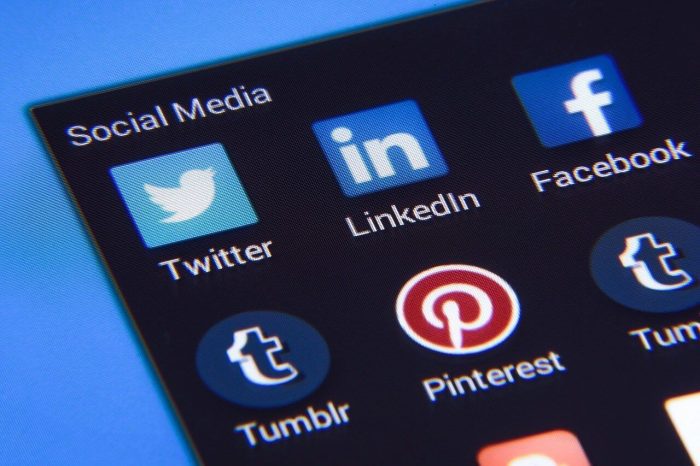How to Manage Excessive Use of Social Media in Young People and Adolescents
Social media networks are tools with great potential to connect with others and to spread and receive ideas, but they also have their negative side. One of them is the ease with which we “get hooked” on them, even giving rise to dependency problems, practically addictions based on repetitive behaviors.
The young population is especially vulnerable to these types of behavior patterns, and that is why many parents are concerned that their son or daughter spends a good part of the day focusing their attention on these digital platforms. Fortunately, Psychology gives several keys to help them overcome this kind of addiction.

Abusive uses detected and their consequences
Below we have explained some ‘abusive uses’ that remain residual when trying to progressively return to normality:
– Invasion of screens in spaces outside the home, on the street. We see or see (especially in the early stages it drew attention) adolescents in parks or banks, with mobile phones but more aware of the network, during the brief period of relief, than of their friends.
– Adolescents who have adapted so much to living around the internet, its platforms, and applications, that now they do not want to leave home, or are even afraid because they prefer to remain connected.
– An excessive use that, although it does not condition leaving home, monopolizes their time and leisure alternatives compared to other activities.
Experts have established that the consequences of the excessive use of screens in general and the abusive use of messaging and social media networks, carries some risks of which there is not always enough information or awareness of their existence. Some possible alterations -beyond the poor management of security and privacy- we could find it in the following aspects:
- Attention, concentration, and memory.
- Academic performance.
- Lack of motivation.
- Increased impulsivity, lack of empathy, or self-esteem problems.
- Need to over-connect and fear of missing something.
- Alteration and lack of emotional management, etc.

How to act before young people who make excessive use of social media networks?
Earlier we mentioned that young people are more likely to use social media networks excessively to the point of letting them absorb their attention. This is mainly due to these elements that, although they do not have to occur in all of them individually, statistically are characteristics of adolescence and post-adolescence:
- They are more interested in gaining the acceptance and admiration of their peers.
- They are interested in controlling the image that others have of themselves.
- They want to be up to date and not lag behind the dominant themes and aesthetics.
A good part of their forms of socializing already takes place on the Internet.
They are more vulnerable to discomfort due to lack of self-confidence, and on the Internet, they can have an “avatar”.
As we have seen, adolescence is generally defined among other things by apparently opposing forces: the desire to stand out and at the same time fit in, the stress of not revealing personal insecurities, and at the same time the pressure to have a public presence before thousands of Internet users. Social media networks play with these dynamics, creating both the promise of exciting incentives (massive acceptance) and the fear of “staying out of the game”, which is known as the FOMO syndrome (“fear of missing out”).
On the other hand, if we add to this that social media networks take advantage of the information that their millions of users pour into them to offer the most personalized and addictive experience possible, the result is that many young people practically live on and for these platforms.
What to do about this, as parents, guardians, or educators? The ideal is to resort to child and adolescent therapy if we have detected a case of excessive use of social media networks by an adolescent, and if this problem results in conflicts in the family, family therapy is another option to consider. However, beyond that, several tips can help young people to “unhook.” They are as follows:
1. Establish schedules and support compliance
Prohibiting a teenager from using social media networks is, in most cases, a bad idea; surely most of their circle of friends use these platforms regularly to communicate with each other, to meet, to talk about experiences in common, etc.
For this reason, it will surely end up “skipping” that prohibition in some way and not even trying to stop using these social media networks excessively, seeing as an imposition everything related to that endeavor.
The best thing is to set limits on the amount of time you should spend using social media, and see it as a quantitative change, not a qualitative one: you will be able to continue doing everything you have been doing, only with more moderation.
2. Help yourself to make the most of the time you save
To get you involved in this process, it is important to help you focus on the positive that you achieve.
The most visible benefit of disengaging from social media is having more time, so work out together how many hours you will earn by limiting your use of these platforms and plan a time or two a week that you can spend doing something that he likes beyond the screens (activities with or without your participation).
Once that is done, propose that he make a goal of having those moments, physically putting them on his schedule; from this moment you will have a constant reminder of how to manage your time, and you will learn to value it.
3. Help you detect times when you use your smartphone unnecessarily
The smartphone is an electronic device that many times we simply use without thinking about whether it is necessary; We only use it because it is always there, it is accessible in a matter of two seconds and it gives us stimuli with ease. Therefore, it is a source of constant distractions, although we would do better to use that time in other ways.
Therefore, think together about those moments of the day when he uses the smartphone even without feeling like it. In this way, you can prevent these situations and avoid that the mobile is a temptation. For example: is it unnecessary for you to use the phone as an alarm clock, making you spend the first few minutes of the day looking at a screen?
4. Set an example
It is very important to lead by example and show that child that it is perfectly possible not to always be using social media networks. It is different telling your children not to get too engrossed with social media while doing the opposite. Children have we all may have noticed, tend to inculcate the habits of their parents. Hence, seeing a parent using social media excessively, while urging them not to do the same will only lead to open rebellion.
Conclusion
From the discussion, it is evident that social media, despite its positive effects, also harbors some psychological issues which affect users that are addicted to it more. By following the tips, we have provided in this post, you are sure bound to effectively manage your use of social media.

